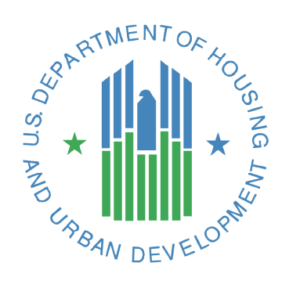FHA Loans
What is an FHA Loan?
Cue the FHA Loan
The Federal Housing Administration (FHA) knows that everyone needs a place to live but that not everyone has the credit score or the down payment that conventional loans require. That’s why they’ve designed a loan type catered to this group of homebuyers, allowing them to achieve their dream of homeownership with a lower income, a lower credit score, and a minimal down payment.
To sum it up, an FHA mortgage is meant to be an affordable option. When you approach an FHA-approved lender, the federal government will insure the funds in case you default. This enables the lending institution to offer you more flexible terms. The only costs to you include slightly higher FHA mortgage rates and a mortgage insurance premium. This is the lender’s way of mitigating the risk of lending to those with less-than-perfect finances.
FHA Loan Requirements
All of this is not to say that anyone can qualify for an FHA loan. There are still some credentials that must be met. As the borrower, you need to have:
- A stable income and employment history
- A credit score of at least 580
- A debt-to-income ratio of 56% or lower (with varying requirements based on the DTI level) (or provide a larger down payment)
- Money to cover closing costs (2% to 6% of the purchase price) and the mortgage insurance premium (~1.75% of the loan amount)
As you look around for houses, remember that not only should you be shopping within the price range quoted to you by your lender during pre-approval, but you also need to find a home priced within the FHA’s lending limits.
Depending on where you live, this limit ranges from $356,362 for low-income neighborhoods and $822,375 for more expensive areas. These amounts change annually, so be sure to check before you shop and remember that the administration only approves these loans for primary residences.
The property you choose has to meet minimum property standards for security and safety as predetermined by the FHA, and they require that you move into the home within 60 days of closing on the loan.

If you’re thinking about using an FHA mortgage to buy a home, first calculate how much you can afford. A HUD-approved counseling agency can help you with this using your credit score, income, current debts, and other factors. (The US Department of Housing and Urban Development (HUD) is the government agency under which the FHA falls; it addresses America’s housing needs.) When you have a ballpark figure, you can start shopping for loans with help from the FHA.
As you look at HUD-approved houses for sale, make a list of musts for the home to have so you can easily narrow down your options. When you’re ready to make an offer, schedule a home appraisal and inspection from someone who can ensure that the property meets FHA standards. After your offer is accepted, you’re about ready to close and move in!
FHA Loan Benefits
The most obvious benefits of an FHA loan is that qualification is relatively easy, and it is an affordable way to buy a home. Even if you have a high-income level but your credit struggles are keeping you from homeownership, you can still qualify. Other benefits of an FHA loan include:
- Multiple housing options: An FHA loan can apply to a condo, a mobile home, a single-family home, or a multi-family home (with four units maximum.
- Cheaper mortgage insurance: With conventional loans, private mortgage insurance is generally more expensive for people with less than perfect credit . FHA loans, on the other hand, will carry the same mortgage insurance costs regardless of your credit.
- Higher debt allowance: Unlike other types of loans which will require you to minimize your debt as much as possible before buying a home, an FHA loan is much more lenient, allowing you to buy a house with a DTI as high as 57% (though if this is the case, you may need a bigger down payment or to take on more interest). Even bankruptcy won’t entirely disqualify you from an FHA loan in many cases.
- Lower credit requirements: First-time homebuyers don’t always have a lot of established credit. Having a mortgage is a great way to build your credit, which is why the FHA has much lower credit requirements than conventional loans. For credit scores less than 580, you will, however, have to make a bigger down payment
- Term options: You can opt for a fixed or adjustable rate for a 15- or 30-year term
How to Apply for an FHA Loan
Conventional Loan Options
Loan 203(b): Basic Home Mortgage
Used to purchase an FHA-approved primary residence
Loan 203(k): Rehab Mortgage
Used to finance a home and renovate it with refinance options available.
Energy-Efficient Mortgage (EEM)
Used to make eco-friendly upgrades when purchasing or refinancing a new or existing house.
Construction to Permanent Loan (CP)
Used to finance the land and construction of a new home.
Title I Property Improvement Loan
Used to buy or repair a new or existing mobile home.